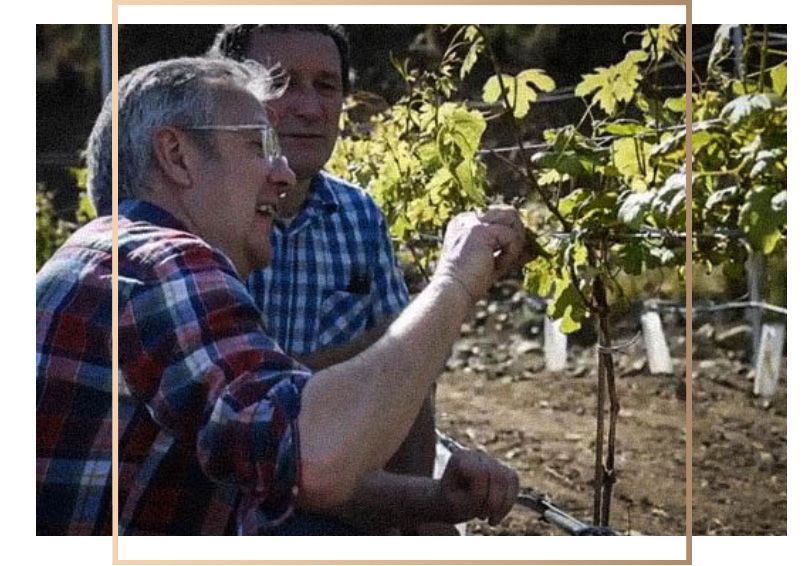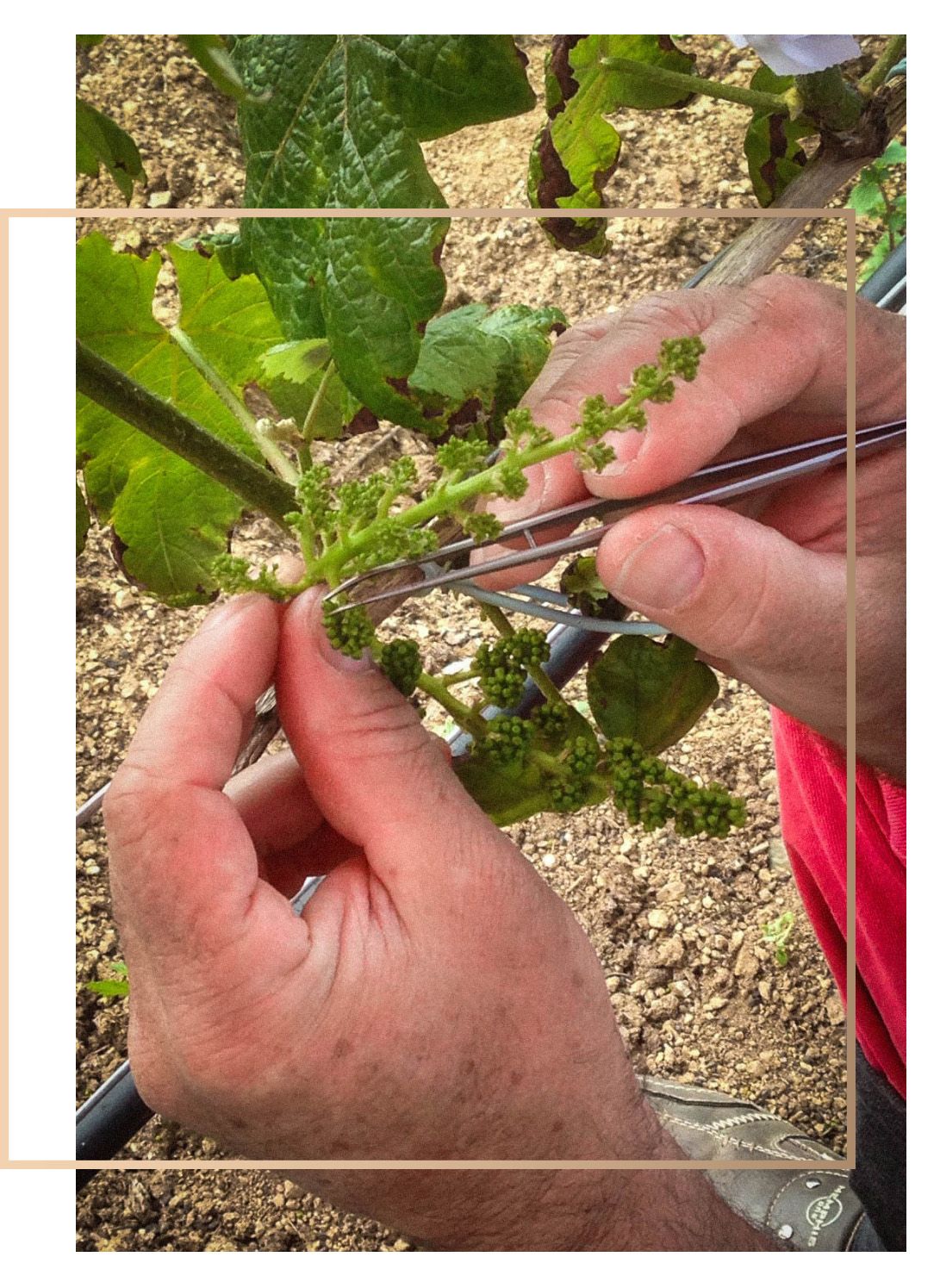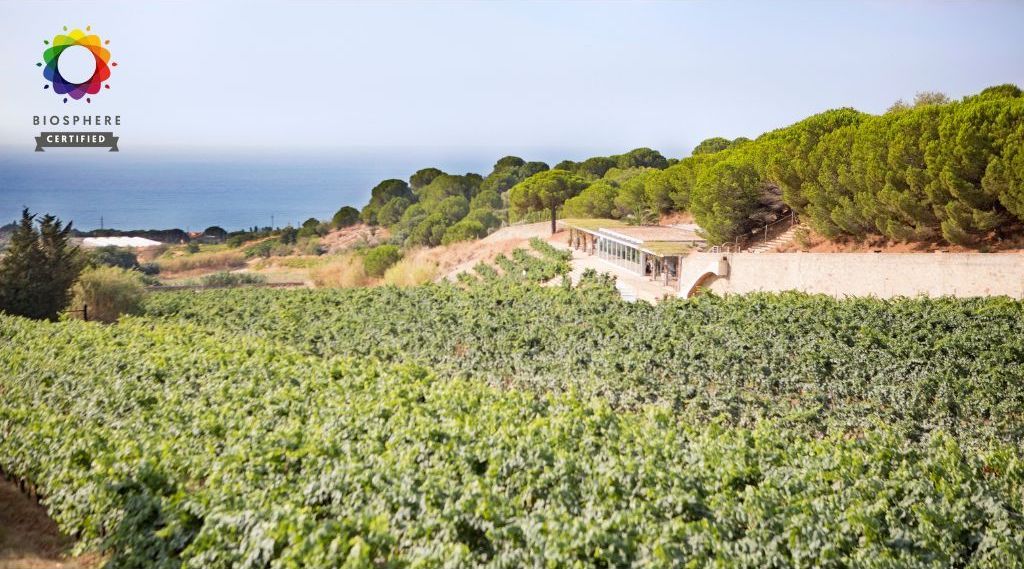Alta Alella, committed to sustainability
From vine to bottle: investing in vineyards
Located in the Serralada de Marina Natural Park, the Pujol-Busquets Family has always been committed to nature and sustainability. Organic since the beginning, their path has been to invest in the land, the vineyards, and being in control of the whole winemaking process.
The vineyards have a very positive impact on the ecosystem in the surroundings of Barcelona and contribute to organize the territory, providing natural landscape value, as well as working as a firebreak. The winery works with small plots, which respect the orography of the valley as much as possible, maintaining the forest areas between vineyards. This enhances biodiversity, prevents the appearance of pests and soil erosion, and has a positive impact on the wine quality.
+ infoCommitted to the environment
Since 2023, Alta Alella is certified with the UNE-EN ISO 14001:2015 – Environmental Management Systems (EMS), an international standard that allows companies to demonstrate their commitment to protecting the environment. It sets out the requirements for an EMS and helps organizations improve their environmental performance through more efficient use of resources and reduction of waste.
Reducing carbon footprint
Since 2021, Alta Alella is one of the Catalan companies adhered to the “Voluntary Agreements Program” promoted by the Generalitat de Catalunya (Catalan Government) and the United Nations. This implies a commitment from the winery to monitor Greenhouse Gas (GHGs) emissions and establish annual measures to reduce them.
At Alta Alella, we calculate and verify the carbon footprint generated by our activities, both direct and indirect, in accordance with the requirements of the UNE-EN-ISO 14064-1:2019 standard on Greenhouse Gases. Holding this certification not only endorses the transparency of our process, but also strengthens our commitment to continuous improvement, responsible environmental management, and reducing the impact of our carbon footprint.
Renewable energy: solar power
At the end of 2022, Alta Alella installed a hundred solar panels on the winery’s roof to produce and consume its own energy in a clean and non-polluting way. These generate up to 50Kw of energy, which is the amount needed for a workday in the winery except during the harvest season.
Corporate awareness
Key to the winery is the fact that all employees share the values of sustainability and respect for the environment; an alignment of principles that reinforces the commitment to nature and ensures that each person in the team acts in line with Alta Alella's environmental goals.
Reused bottles and packaging reduction
Since 2006, all the wines from Celler de les Aus are released in reused bottles (80,000 annually).
In mid-2023, Alta Alella started a new system of reusing the bottles consumed at the Wine Tourism Center, with a rigorous process of conditioning and sanitization by the Catalan start-up POTS.
Little by little, the winery is also implementing other changes that help to generate less waste and reduce the carbon footprint, such as replacing capsules with wax or working with lighter bottles.
+ infoDeveloping disease-resistant plants and adapted to Climate Change
In 2012 Alta Alella embarked on a viticulture research project to develop Resistant and Autochthonous Varieties Adapted to Climate Change (VRIAACC in Catalan: Varietats Resistents i Autòctones Adaptades al Canvi Climàtic).
Obtaining new plants through sexual reproduction is a long road, but the results of microvinifications obtained so far are encouraging and the advantages for viticulture are still unimaginable.

The main objectives of this project are to obtain plants resistant to downy mildew, powdery mildew, induced botrytis (not very compact bunches), Drosophilia Suzuki (thick skin) and drought, and also a delay in ripening (2-3 weeks) and low secondary buds.
Thanks to this innovative viticulture, other improvements will also be obtained, such as 90% less treatments, lower production costs, less soil compaction, working in a healthier environment, reducing CO2 emissions, avoiding the effects of climate change and reducing production loss due to pests, among others.

Biosphere: Sustainable Wine Tourism
Alta Alella is a member of the Barcelona Biosphere Commitment to Sustainable Tourism, a distinction that recognizes tour operators that are committed to: environmental sustainability, culture, working conditions, gender equality and social and economic return.
- Commitment to a sustainable mission, vision and values of the organization, with an annual improvement plan in different areas.
- Ongoing training of our team to learn how to communicate and apply sustainability to the sector and the company.
- To support the World Charter for Sustainable Tourism, and contribute to achieving the 17 Sustainable Development Goals.
- Anticipate the negative impacts of our facilities and activities, and seek to benefit from their positive impacts.
- To take responsibility for visitor satisfaction and communicate our winery’s sustainable principles and initiatives.


